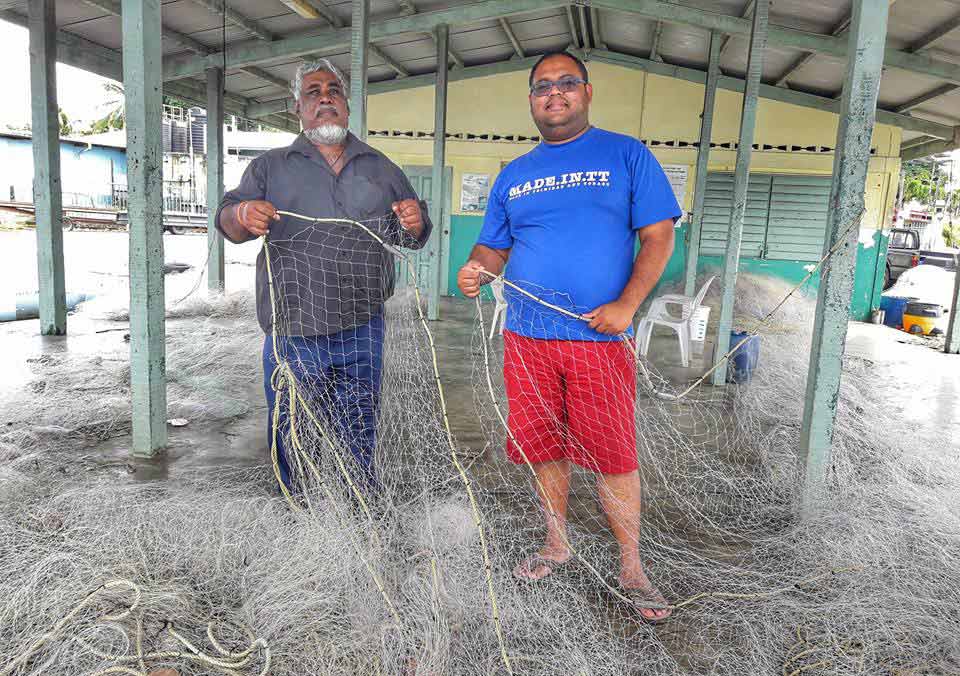“Every day is fishing, not every day is catching. Times have changed and the tide has changed.” Kishore ‘Ragoo’ Boodram would make this statement almost every time we met over the past decade. Today, I remember him by these words, his mentorship, friendship and advocacy as I join with the Felicity Charlieville Fishing Association in extending our deepest and respectful condolences to his family and friends as well as those in the fishing community in Claxton Bay and environs.
He was the President of the Claxton Bay Fishing Association for many years as well as fulfilled other roles in representative fisheries organizations.
Boodram was a consistent advocate for the betterment of lives and livelihoods of artisanal and inshore fishers across this country. He was at the forefront of advocacy on the major issues including training and education, pollution especially the impact of industrial and oil waste on the Gulf of Paria fishery, industrial trawling, piracy and safety at sea, access to markets and marketability, and cost of production including cost of fuel and incentives for fisherfolk.
He was always open to collaboration.
His knowledge, experience and willingness to share was welcomed by many including local, regional and international experts, researchers, policymakers and university students who desired to learn about life beyond our shores. He is respected in the Claxton Bay community for his leadership of the fishing association and other stakeholders operating in the environment.
In 2018 he assisted an international research team from the University of Florida and us at the Faculty of Food and Agriculture (UWI) in a study which formed part of on-going research to determine how variation in life history and connectivity drive pathogen-host dynamics and genetic structure in a trans-hemispheric pathosystem. This was recently published by the Marine Ecology Progress Series titled “Climate and season are associated with prevalence and distribution of trans-hemispheric blue crab reovirus (Callinectes sapidus reovirus 1)”.
The blue crab is an ecologically important benthic crustacean with a remarkable range that spans the Atlantic coast of both North and South America.
In Trinidad and Tobago the blue sea crab has certain socioeconomic value and its heavily depleted stocks and landings remains a delicacy similar to other jurisdictions. While there has been significant advocacy focused on the integrity and sustainability of the Gulf of Paria fishery for many years; the outstanding issues remain largely unaddressed. The focal points have been the damage inflicted by energy and industrial interests, unsustainable fishing practices, and general environmental interactions from climate change through flooding and effluent on the fishery especially juveniles, breeding grounds and vulnerable species. In this instance, further pressure on food and nutrition security as well as livelihoods is possible through viruses and genetic changes.
Additionally, Kishore travelled across Trinidad with me in 2013 to assist in the development of a Financial Empowerment Programme for Fishing Communities while at the Seafood Industry Development Company. The programme was primarily targeted to fisherfolk but widened to include families particularly their wives and children, community-based business enterprises, community groups and other interested participants. He advocated that the importance of women and the role they play in the fishing activity, marketing, and seafood processing and financial and other record-keeping of the business and household warrants them inclusion in all development discussions in a field that may have been previously thought of as male-dominated.
Fishing communities tend to be close knit and there is evidence of overlap between stakeholder groups and those playing a role in the socio-economic development of the fishing communities via their business operations and participation in projects that enable job and wealth creation.
Around that time he lobbied for the renovation and upgrade of the Claxton Bay Fish Landing Site, fish market and the construction, outfitting and training to accompany a seafood processing facility on the site. Today, much of this investment has fallen into disrepair and inactivity with a lack of maintenance and supervision.
With this in mind I call on the Honourable Prime Minister, Dr Keith Rowley, to dedicate the Claxton Bay Fish Landing Site to Kishore’s memory, a landmark and a stalwart of Claxton Bay. I respectfully ask that the physical premises and facilities be restored to all applicable operating regulations, that Fisheries Division, Municipal Corporation, Public Health and other relevant personnel be assigned to its upkeep and that the processing facility be restored and operationalized to the benefit of the Claxton Bay fishing community especially to provide entrepreneurship opportunities to the women and youths who were previously and are willing to be trained by the Caribbean Fisheries Training and Development Institute (CFTDI). This support can be supplemented by the National Agricultural Marketing and Development Corporation (NAMDEVCO) and Agricultural Development Bank (ADB) for guidance on agribusiness development and marketing.
Surely, there must be some fiscal space in the much touted $500 million boost to agriculture this year which could accommodate a leadership legacy and the many interrelated livelihoods that depend on the fishery in that region. The actors in the sector appear to be at odds with what is required in this period.
Any move towards sustainable development requires a strategy based on instilling resilience in economic, environmental, social and political systems but more so by building the human assets needed for sustained development.
Omardath Maharaj
Agricultural Economist
Image 1 – Kishore Boodram, President of Claxton Bay Fishing Association, discussed at length some of the challenges prevailing in the industry.
